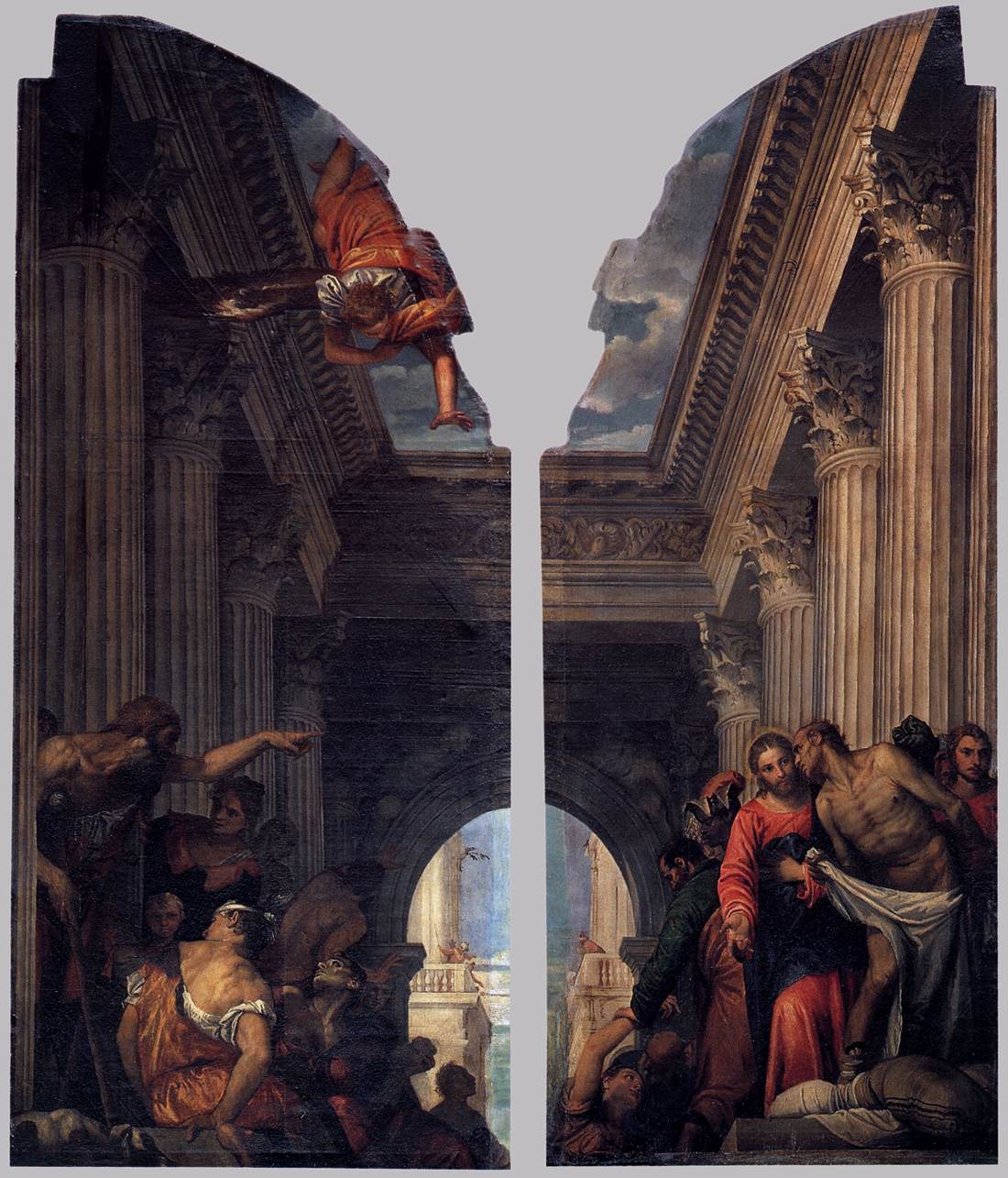Description
The painting "Healing of the Lame Man at the Pool of Bethesda" by the artist Paolo Veronese is a masterpiece that stands out for several interesting aspects.
First of all, Veronese's artistic style is evident in this work, as he is known for his ability to depict Biblical scenes in a grand and theatrical way. In this painting, Veronese uses a rich and vibrant color palette, including shades of gold, deep reds, and deep blues. This creates a sense of opulence and drama in the scene.
The composition of the painting is also remarkable. Veronese uses a symmetrical arrangement to organize the characters and elements in the work. In the center is Jesus, surrounded by a crowd of people seeking his healing. The figure of Jesus stands out for its elevated position and its gesture of blessing, which gives it a sense of authority and power. Additionally, Veronese uses diagonal lines in architecture and figures to create a sense of movement and dynamism in the scene.
The story behind the painting is also interesting. The scene depicts the miracle of Jesus at the Pool of Bethesda, where he healed a paralyzed man who had been waiting a long time to be healed. Veronese captures the exact moment Jesus utters the words that heal the man, which can be seen in the look of wonder and gratitude on the man's face. This depiction of the miracle is a recurring theme in religious art, but Veronese manages to give it his own unique style and approach.
In addition to these more well-known aspects, there are some lesser-known details in the painting that are also interesting. For example, Veronese includes several minor characters in the play, such as mythological and allegorical figures, who add an element of mystery and symbolism to the scene. These additional details invite the viewer to explore the painting more closely and discover new layers of meaning.
In short, the painting "Healing of the Lame Man at the Pool of Bethesda" by Paolo Veronese is a fascinating work that stands out for its artistic style, composition, use of color, and its portrayal of a Biblical story. This masterpiece offers a unique insight into a miraculous moment and showcases Veronese's ability to create emotional and theatrical scenes.

